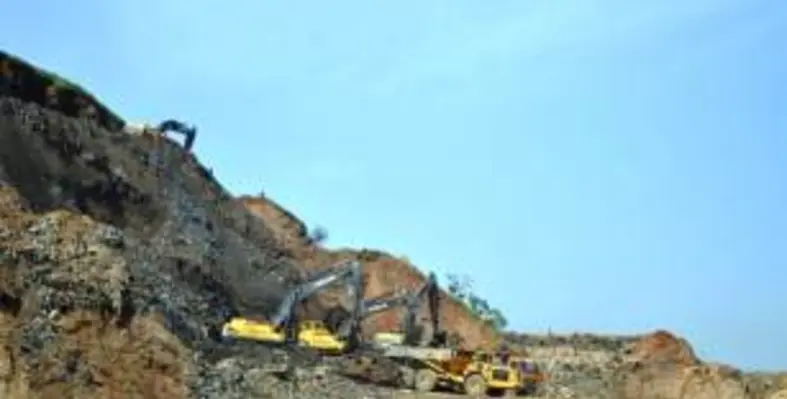A fleet of Volvo CE machines is helping remove an existing waste dump and construct a new sanitary landfill in a coastal town of Lebanon
There is a huge mountain of rubbish that occupies the shores of the coastal town of Bourj Hammoud. Located northeast of Beirut on the edge of the Mediterranean, Bourj Hammoud is home to 150,000 residents within 2.5 sq km, making it one of the most densely populated districts in the Middle East. The town is also home to a 47-meter ?rubbish mountain? that has lain dormant in the local landfill for 27 years.
In 2016, the Lebanese government announced the reopening of the Bourj Hammoud Landfill. A tender was held that required the winner to remove the mountain of rubbish and replace it with a new, sanitary landfill. When fully completed in August 2020, the US$100mn project will contain 1.6mn tonnes of waste.
Working for the Council for Development and Reconstruction (CDR) is Khoury Contracting Company (KCC). Established in 1987, the company specialises in marine and municipal work as well as heavy civil engineering.
?Our history of working on large projects provides us with the experience and confidence to complete the Bourj Hammoud Landfill,? said Toufic Kazmouz, project manager at KCC. ?We have the right team and equipment ? both of which are essential to ensure the success of the project.?
Over 200 KCC employees are working at the landfill site, alongside 39 machines from Volvo Construction Equipment. The equipment was supplied by local Volvo CE dealership AMTRAC and includes EC460B, EC380D, EC350D, EC360B and EC290B excavators, A35C, A35D A40 and A40D articulated haulers, L180E and L220E wheel loaders and SD110 soil compactors.
Working to complete phase one is a fleet of Volvo excavators and articulated haulers, excavating 3.5mn cu/m of waste from the existing site. The waste extracted by Volvo excavators from the dump will be sorted and later, hauled and backfilled in a reclaimed area of 340,000 sq m using Volvo articulated haulers. The reclaimed areas will be protected by a breakwater.
Some of the excavators used during the initial phase will subsequently be used to build the breakwater wall, designed to create a strong shield from the waves. Three million cu/m of rock fill material will be used for its construction, as well as 200,000 cu/m of concrete for the face of the breakwater. The construction will enable KCC to safely operate the new sanitary landfill over 30 months. The new sanitary landfill consists of eight cells, each constructed by KCC?s Volvo wheel loaders. Volvo excavators and articulated haulers will lay two million sq m of liner system ? a geomembrane isolating material ? that will contain the solid waste transported from existing treatment centres in Beirut.
?Volvo?s low fuel consumption is unbeatable,? says Simon Azar, plant machine and vehicle manager at KCC. ?Compared to competitor brands, the Volvo excavators consume less fuel, and ensure fast cycle times and high productivity.?
Supplied with a service contract delivered by AMTRAC, the Volvo machines are working at optimum levels for 14 hours a day, seven days a week. ?AMTRAC has played a significant part in ensuring the uptime of our machines,? says Azar. ?The maintenance team and the high availability of parts are just a couple of the many factors that contribute to our long relationship with the dealership.?
?When complete, the landfill will safely contain freshly sorted solid waste ? preventing any contamination of the sea or streets,? reiterated Kazmouz.







